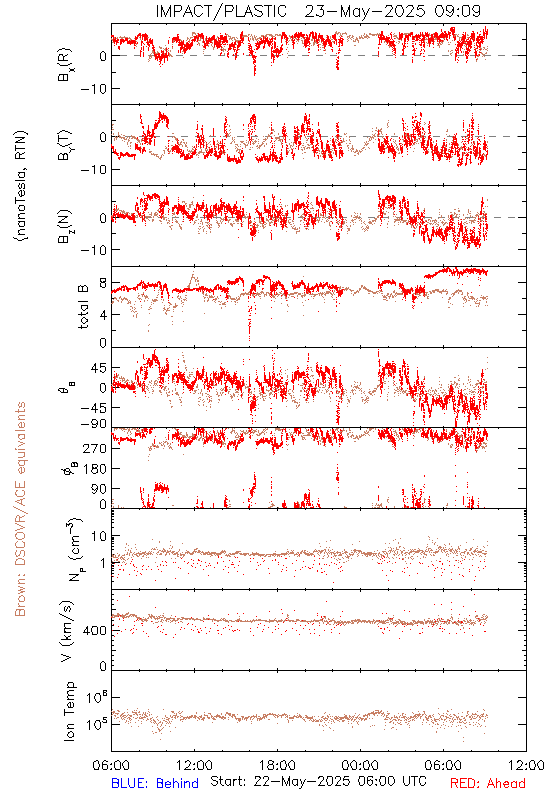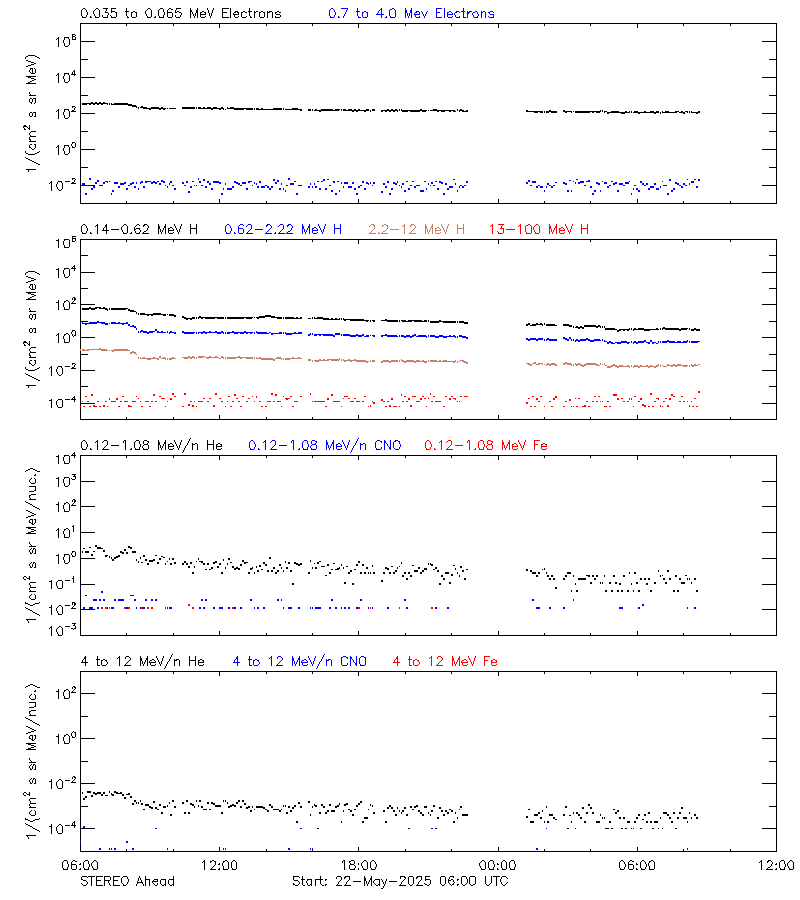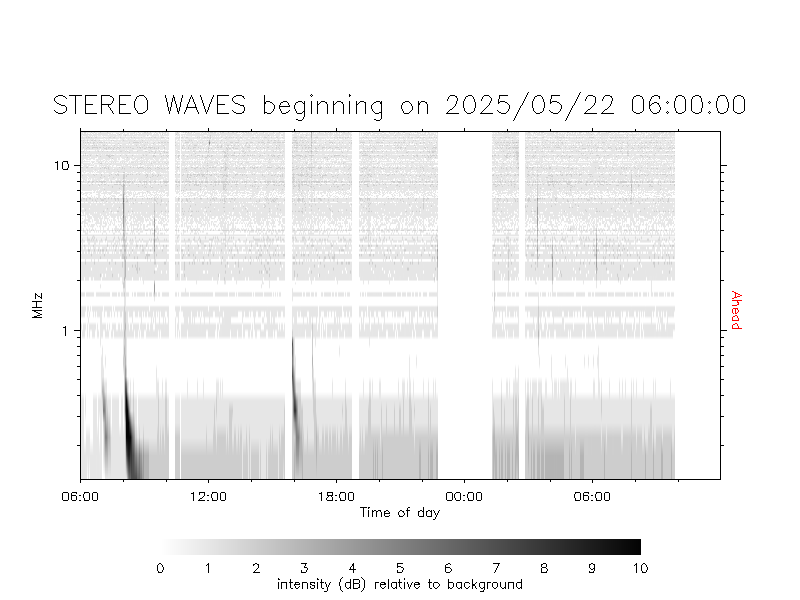|
Information
about STEREO-A close approach to Earth, August 2023
STEREO In-Situ and Radio Space Weather Beacon Data
Shown here are plots of the latest in-situ particle and fields data from the
STEREO IMPACT and PLASTIC instruments, and radio data from SWAVES. The
STEREO space weather beacon telemetry mode is a very low rate, highly
compressed data stream broadcast by the spacecraft 24 hours per day. These
data are used for space weather forecasting. Because the data are produced
in real-time, the calibrations may not match those used for the final data
product.
| Realtime resources: |
|
Browse resources: |
|
|
|
|
IMPACT/PLASTIC solar wind data

Plot revised: Saturday, 26-Apr-2025 09:20:03 UTC
IMPACT solar energetic particle data

Plot revised: Saturday, 26-Apr-2025 09:20:03 UTC
Please see this important notice regarding
STEREO-SIT-A matrix rate anomaly after September 23, 2018
instrument turn off.
SWAVES radio data

Plot revised: Saturday, 26-Apr-2025 09:20:03 UTC
This page should automatically update every 5 minutes. Otherwise, use your
browser's "reload" button to get the most recent plot.
Radial-Tangential-Normal (RTN) coordinates are defined such that
the +X axis points from sun center through the satellite (radial), and
the +Z axis points along the projection of the solar North pole (normal).
The +Y axis completes the right-handed coordinate system, and points
towards the solar West limb (tangential).
The data on this page include telemetry collected by the following
organizations:
- NASA Deep Space Network
Japan
- Amateur station DL0SHF, Kiel-Ronne, Germany
- AMSAT-DL/Bochum Observatory, Germany
- Johns Hopkins University Applied Physics Laboratory, Laurel, MD, USA
We would also like to acknowledge the past assistance from the following
organizations:
- Rutherford Appleton Laboratory: Chilbolton, UK
- Centre National d'Etudes Spatiales: Toulouse, France
- Korean Space Weather Center: Jeju, South Korea
- National Institute of Information and Communications Technology: Koganei, Japan
In addition, we wish to acknowledge
- Amateur station KA9Q, Phil Karn, for writing and donating the decoding
software used at the ground stations.
- NOAA Space Weather Prediction Center for organizing and scheduling the
ground station network.
Last Revised: Monday, 28-Oct-2024 18:35:02 UTC
Responsible NASA Official: ![[email address: Therese.A.Kucera<at>nasa<dot>gov]](/img/kucera_email1.jpg)
Accessibility
Privacy Policy and Important Notices
Feedback and comments: webmaster
|